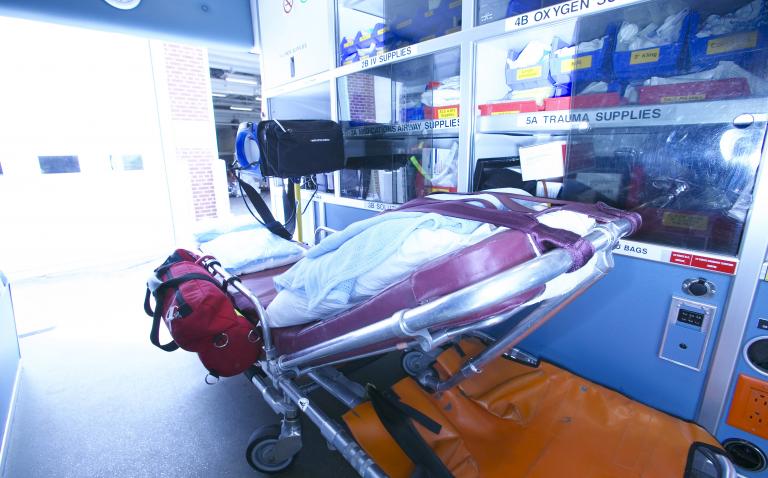The health minister has defended plans to answer more 999 calls with one-person ambulance crews amid concerns it could put further pressure on hospitals.
Ben Bradshaw said sending a “single responder” rather than two people in an ambulance in certain cases will help free up resources and not put patients at risk.
He added: “Fast-response vehicles can often get to the scene faster than traditional ambulances, and can provide assessment and care until a further response arrives.”
It comes after a BBC report claimed that all but one of the ambulance trusts in England want to make greater use of “solo responders” in an effort to meet new response-time targets.
Ten trusts will be expected to respond to 75% of the most serious emergencies within eight minutes of receiving a call under plans due to come into force next April.
Currently the clock starts ticking after personal details have been entered on to a database.
But Mr Bradshaw said changing the way response times are measured will speed up the whole process.
He said: “This will not only save lives and improve patient experience, it will also ensure that trust resources are being used efficiently, that necessary investment in technology takes place, and that the workforce is developed both out in the field and in control rooms – all vital to ensure that we have a service that evolves to continue to deliver the highest service possible to patients.”
Copyright © PA Business 2007
Your comments: (Terms and conditions apply)
“If you need to use other professionals as first responders you should not attempt to use just one responder in emergencies. As a professional working in this field, I think that using single responders in ambulances will expose the responders greatly and will place them under serious pressure. There is no real emergency that can be dealt with by a single responder for a long time. If the ambulance service in the UK would accept the fire departments, and maybe the police, as partners in first response, I am sure that you will get to emergencies in time, given the important resources the fire departments have and the way they are spread. I wonder how a single responder will behave when he or she gets to a critical case where intense work on one or more patients is needed. Emergency care is a team job and it has never had an individual approach. It will all depend on how long the single responder be on the scene until more help arrives. I still believe that using other professionals such as firefighters is safer than sending paramedics alone to critical emergencies! The problem of health ministries usually is the unwillingness to work with other ministries and authorities and this is a clear example of lack-of-vision and cooperation! Sorry for being so direct but it is not fair either for those working within the system or for patients!” – Raed Arafat MD.










